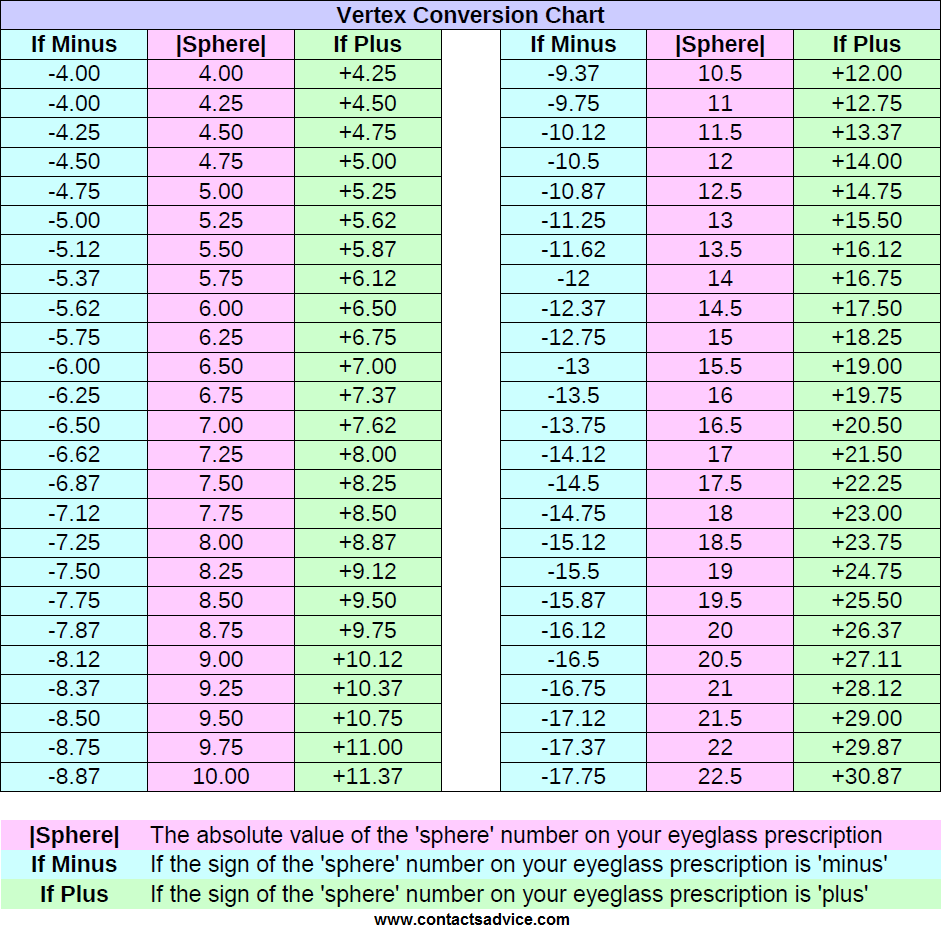Vertex distance is a crucial factor in the field of optics, especially in the design and fitting of eyeglasses and contact lenses. It refers to the distance between the back surface of a lens and the front surface of the eye when the lens is in place. This distance plays a significant role in determining the optical power of the lens and ensuring proper vision correction for the individual.
Optometrists and ophthalmologists use vertex distance measurements to calculate the effective power of a lens and make necessary adjustments to ensure optimal vision for the patient. A vertex distance conversion chart is a handy tool that helps in converting lens powers between different vertex distances, allowing for accurate prescription adjustments.
Vertex Distance Conversion Chart
How to Use a Vertex Distance Conversion Chart
When a prescription is written for a specific vertex distance, but the lenses are made or fitted at a different vertex distance, it is essential to use a vertex distance conversion chart to adjust the lens power accordingly. The chart typically provides conversion factors that allow for accurate calculations based on the difference in vertex distances.
Using a vertex distance conversion chart involves determining the prescribed lens power, identifying the prescribed vertex distance, and then applying the appropriate conversion factor to calculate the adjusted lens power for the new vertex distance. This ensures that the patient receives the correct vision correction despite any changes in the lens fitting or prescription.
Conclusion
Vertex distance conversion charts are valuable tools in the field of optics, enabling practitioners to make accurate adjustments to lens prescriptions based on changes in vertex distances. By understanding the importance of vertex distance and how to use conversion charts effectively, eyecare professionals can ensure that patients receive optimal vision correction and clarity.
